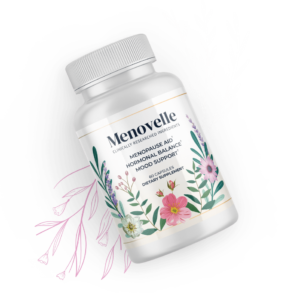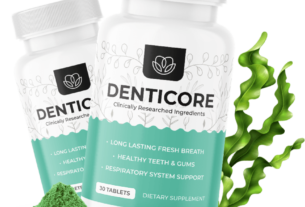Menopause changes your body and your life. This short guide helps you spot stages like Perimenopause, notice common signs, and know when to see a clinician. Expect clear facts on hot flashes, night sweats, and vaginal dryness, plus how HRT treats estrogen loss and protects bone health. You’ll get simple lifestyle tips for diet, exercise, and sleep, easy vaginal dryness relief and nonhormonal options, and the key questions to ask about treatment.

Key takeaway
- Drink water and keep meals regular
- Move daily with walks or gentle exercise
- Keep your bedroom cool and follow a sleep routine
- Wear light layers and use a fan for hot flashes
- Talk with your doctor about treatments that help you
Understanding Menopause stages and common signs
Perimenopause and menstrual changes
Perimenopause is the transition before full Menopause, when hormones shift. Periods may become earlier, later, lighter, heavier, or skipped. Think of it as a dimmer switch—for most people it’s gradual, not sudden.
Common changes:
- Irregular cycles
- Heavier or lighter bleeding
- Missed periods
- Mood swings or sleep disruption
Stage overview:
| Stage | What you might see |
|---|---|
| Perimenopause | Irregular cycles, spotting, mood changes |
| Menopause | No period for 12 months; classic symptoms like hot flashes |
| Postmenopause | Symptoms may ease; health checks remain important |
If bleeding is suddenly very heavy or you have severe pain, see a doctor—these can signal other conditions.
Hot flashes, night sweats, and vaginal dryness
The most common symptoms are hot flashes, night sweats, and vaginal dryness.
- Hot flash: sudden rush of heat, sweating, fast heartbeat.
- Night sweat: a hot flash that wakes you.
- Vaginal dryness: can make sex uncomfortable and raise infection risk.
Quick tips:
- Wear layers and carry a fan for hot flashes
- Use breathable bedding to reduce night sweats
- Use water-based lubricants or vaginal moisturizers for dryness
What helps:
| Symptom | What helps |
|---|---|
| Hot flashes | Cool cloth, light layers, avoid spicy foods |
| Night sweats | Breathable sheets, lower room temp, limit alcohol |
| Vaginal dryness | Lubricants, moisturizers, discuss options with your doctor |
Symptoms vary—some have mild, short episodes; others experience strong symptoms for years. Simple fixes can help, but professional care is often useful.
When to see a doctor about Menopause symptoms
See a doctor if you have:
- Bleeding that is very heavy or prolonged
- Bleeding after you’ve gone 12 months without a period
- Severe pelvic or abdominal pain
- Symptoms that prevent sleep, work, or enjoyment of life
- Sudden, deep mood changes or thoughts of harming yourself
- Signs of other conditions: rapid weight change, palpitations, fever
A clinician can check for anemia, infections, thyroid problems, or other causes and discuss treatments to improve your quality of life.
Medical options for Menopause relief, including HRT
Menopause symptoms can be treated medically or managed with non-hormonal options. Discuss goals and risks with your clinician.
Main options:
- HRT (hormone replacement therapy): most effective for hot flashes, night sweats, and vaginal symptoms
- Local vaginal treatments: creams, rings, tablets for dryness and pain with sex
- Non-hormonal drugs: some antidepressants, gabapentin, or certain blood-pressure meds can reduce hot flashes for some people
- Bone drugs: bisphosphonates and others lower fracture risk when bone density is low
- Lifestyle: exercise, calcium, and vitamin D support bone health
How HRT treats estrogen deficiency
Estrogen falls at Menopause, causing many symptoms. HRT replaces estrogen alone or with progesterone to relieve symptoms and protect bone.
What HRT does:
| What HRT does | Typical results |
|---|---|
| Replaces estrogen systemically | Reduces hot flashes and night sweats in days–weeks |
| Local vaginal estrogen | Improves vaginal dryness, pain with sex, urinary symptoms |
| Estrogen progesterone (if you have a uterus) | Protects uterine lining while treating other symptoms |
| Regular use | Slows bone loss and helps maintain bone density |
Expect many people to feel relief from hot flashes within 1–4 weeks; vaginal symptoms often improve in a few weeks. Delivery options (pills, patches, gels, rings) affect absorption and side effects.
Bone health and osteoporosis risk after Menopause
After Menopause, lower estrogen accelerates bone loss, increasing fracture risk. Discuss bone health with your clinician.
Actions:
- Ask for a DEXA scan if you have risk factors or are of screening age
- Lifestyle: weight-bearing exercise, protein, calcium, vitamin D
- HRT can slow bone loss while used; other medicines reduce long-term fracture risk
Discussion points for your clinician:
| Topic | Why it matters |
|---|---|
| DEXA scan | Shows fracture risk and guides treatment |
| HRT for bone protection | Helpful while on therapy, but not the only option |
| Non-hormonal bone drugs | Options if HRT isn’t suitable or for long-term protection |
| Fall prevention | Simple home changes dramatically cut fracture risk |
Bring up family history of fractures or early osteoporosis to guide decisions.
Key questions to ask about HRT and safety
- What benefits can I expect from HRT for my symptoms?
- Do I need estrogen alone or estrogen progesterone? Why?
- Which delivery method suits my life and health?
- What are the short- and long-term risks for me? (clots, stroke, breast changes)
- How long should I try HRT before reassessing?
- Will HRT affect my bone density or need for other bone drugs?
- Are there non-hormonal options if I can’t use HRT?
- How will we monitor safety? What tests or follow-up are needed?
- What side effects should prompt a call?
Ask for practical examples: e.g., If my hot flashes drop by half in 2 weeks, is that a good sign?
Lifestyle and self-care strategies to ease Menopause symptoms
Diet, exercise, and sleep tips
- Eat small, regular meals to steady blood sugar and reduce hot flashes and mood swings
- Avoid triggers: spicy foods, caffeine, and alcohol; track triggers in a simple log
- Move daily: short walks, 30-minute brisk sessions, and twice-weekly strength work for bone health
- Use slow, deep breathing when a wave hits (inhale 4, exhale 6) to calm a hot flash
- Keep the bedroom cool, use breathable sheets, a fan, and limit heavy meals or caffeine before bed
Foods that help vs. foods to limit:
| Eat more (may help) | Limit or avoid (can trigger) |
|---|---|
| Leafy greens, dairy, fortified plant milks (calcium, vitamin D) | Spicy dishes |
| Soy foods (may help some) | Large amounts of caffeine |
| Whole grains, beans (steady energy) | Alcohol late in the day |
| Cold fruits, water (instant cooling) | Sugary snacks that spike blood sugar |
Vaginal dryness, pelvic care, and nonhormonal options
Start with simple products: water-based lubricants for sex, vaginal moisturizers for daily comfort. Silicone lubricants last longer.
Pelvic floor matters: do regular Kegels (tighten 5 sec, release 5 sec, 10 reps, twice daily) and consider pelvic physiotherapy.
Non-hormonal options:
- Water-based lubricants for sex
- Vaginal moisturizers (2–3 times/week)
- Hyaluronic acid vaginal gels (where available)
- Pelvic floor exercises and physiotherapy
- Regular sexual activity or pelvic massage to boost blood flow
Comparison:
| Product | Best for | How often |
|---|---|---|
| Water-based lubricant | Sex, short-term relief | As needed |
| Silicone lubricant | Long-lasting slickness | As needed |
| Vaginal moisturizer | Ongoing dryness control | 2–3×/week |
| Hyaluronic gel | Deep moisturizing for soreness | Per product directions |
If dryness causes pain or bleeding, see your doctor—some treatments require a prescription.
Simple daily habits to lower Menopause discomfort and protect bone health
- Keep calcium and vitamin D in your routine via food and safe sun; supplement if needed
- Weight-bearing exercise 3×/week and strength training 2×/week
- Quit smoking and reduce alcohol—both worsen hot flashes and bone loss
- Practice balance work to prevent falls (single-leg stands, yoga, tai chi)
- Remove fall risks at home: rugs, poor lighting, missing railings
Bone-help checklist:
| Habit | How to do it |
|---|---|
| Calcium | Dairy, fortified milk, leafy greens |
| Vitamin D | Sunlight, fatty fish, fortified foods or supplements |
| Weight-bearing exercise | Walks, stairs, dancing |
| Strength training | Bands, light weights, bodyweight moves |
| Fall prevention | Remove trip hazards, add rails, use night lights |
Small, steady changes beat big, short bursts.
FAQs about Menopause
Q: When is Menopause considered to have occurred?
A: After you’ve gone 12 months without a period.
Q: How long do hot flashes last?
A: Varies—weeks to years. Many see improvement with lifestyle changes or HRT.
Q: Is HRT safe for everyone?
A: No. Safety depends on personal risk factors. Discuss benefits and risks with your clinician.
Q: Can I protect my bones after Menopause?
A: Yes—exercise, calcium, vitamin D, fall prevention, and appropriate medications when needed.
Q: Are there non-hormonal treatments for symptoms?
A: Yes—lubricants, moisturizers, some medications (antidepressants, gabapentin) and pelvic therapy can help.
Conclusion
Menopause is a chapter, not an ending. From Perimenopause changes in your cycle to hot flashes, night sweats, and vaginal dryness, knowing what’s normal helps you steer the ship. If bleeding is very heavy, pain is severe, or symptoms disrupt sleep or mood, see a doctor. Treatment isn’t one-size-fits-all: HRT can be transformative, while local treatments, non‑hormonal options, and bone drugs offer alternatives. Pair medical care with lifestyle moves—steady meals, daily movement, cool sleep habits, and bone‑building foods and exercise. Small habits add up. You’re the captain—use the tools that fit your health and life.
Want to keep learning? Dive into more practical guides and tips at https://supplementhive.shop — your next good idea may be one click away.
Liked this article? You might also enjoy our article on the best natural ways to improve your health:
Menovelle Review Does It Really Relieve Menopause Symptoms 2025
Menovelle
🔒 Order Menovelle now, backed by a 60-day guarantee!
“Many customers report feeling more confident about their health”
MENOVELLE.





